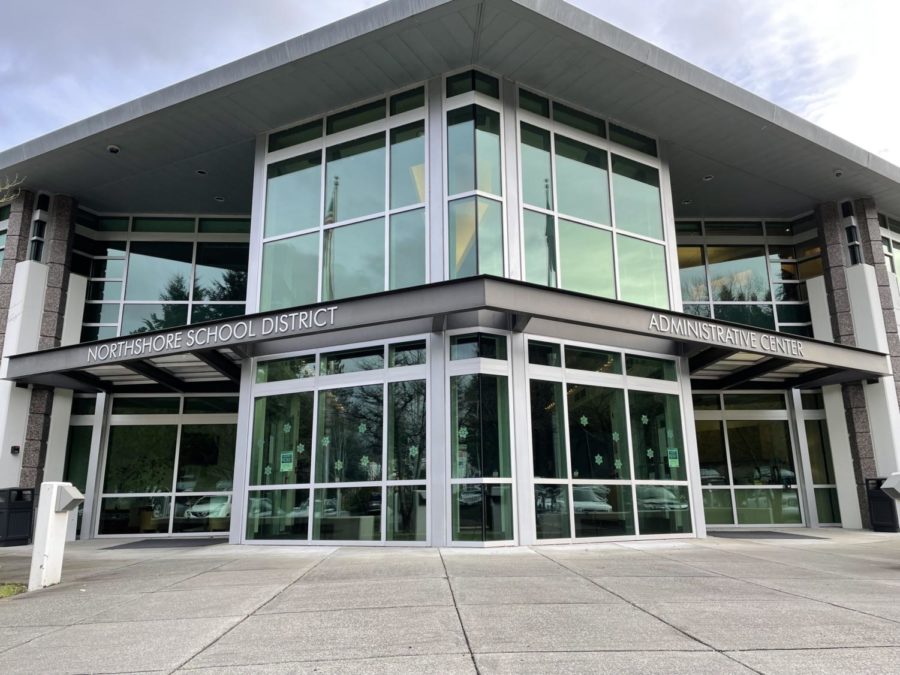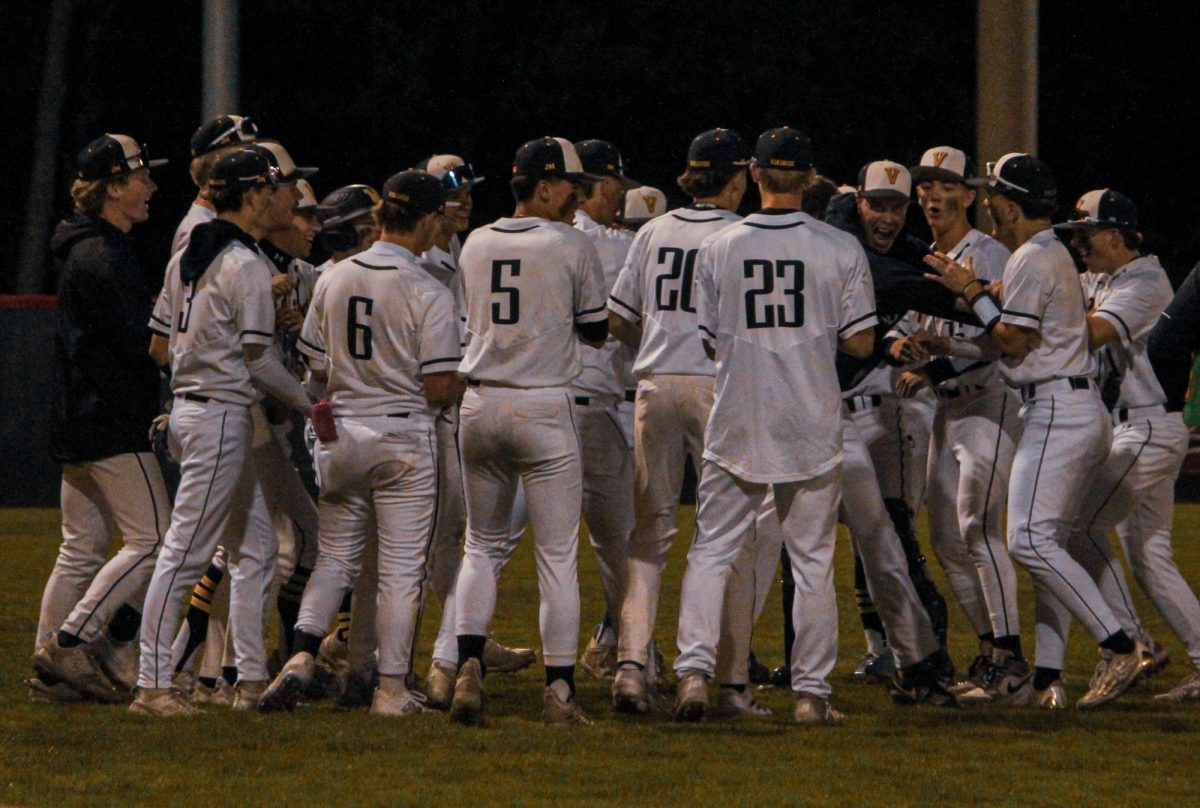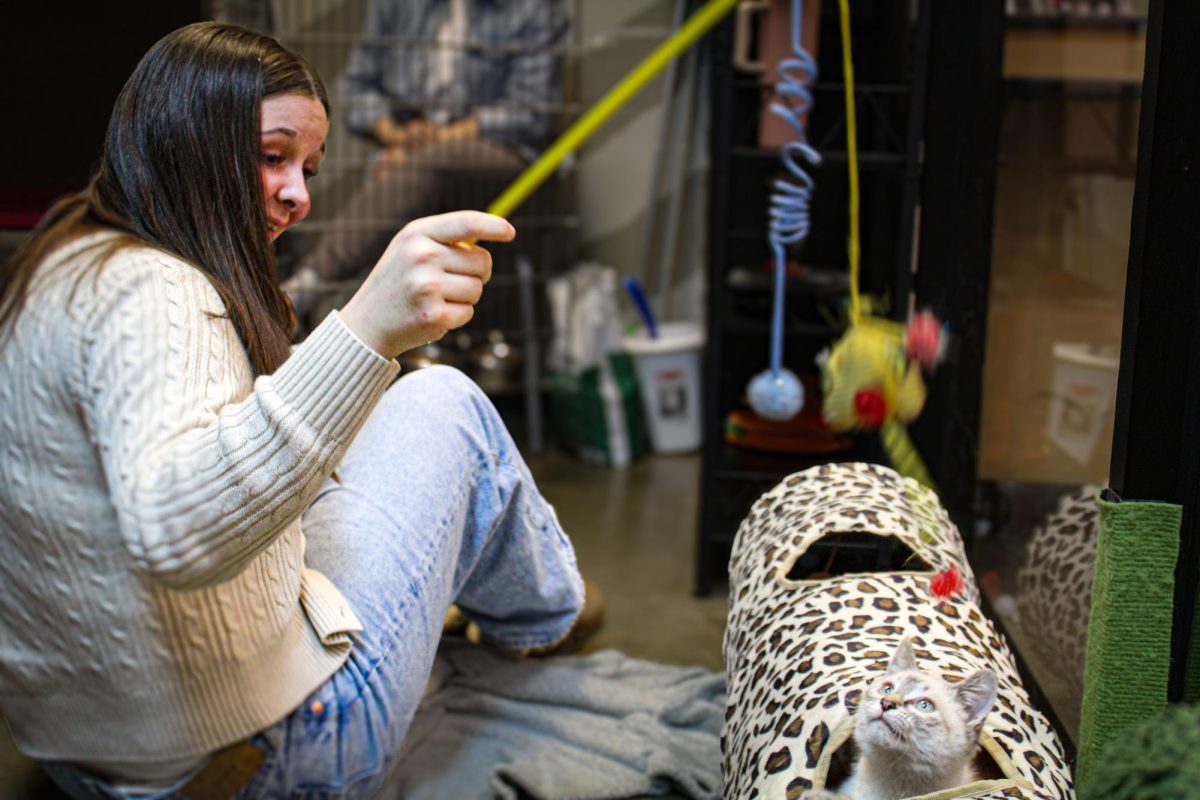The return to in-person learning this school year means clubs are once again starting to pursue field trips and sports are looking to resume full-scale events. But as multiple trip requests have been rejected in recent months and athletic events have been canceled due to high positivity rates, many in Northshore School District have asked questions about the opaque process through which these decisions are made. Interviews with teachers, administrators, district leaders and others close to the process have made clear a chain of command both deeply impacted by COVID-19 and confusingly communicated to students, families and staff.
Field Trips
The origin point for any field trip—whether it be for a club, class, sport, music program or otherwise—is the teacher, advisor or coach leading that group. That adult leader fills out and collects all necessary paperwork before submitting it to Assistant Principal Joe Mismas, who is the Administrative Liaison for Field Trips.
“I review all the forms and make sure everything is in order, the budget makes sense, and then depending on the field trip…I give approval to proceed with this field trip or I send them to the district level,” said Mismas.
There are three categories of field trips: in-state, out-of-state and international. Prior to the pandemic, Mismas had discretion to approve all in-state field trips, and the school board had to approve all trips outside of Washington. ASB Coordinator Elizabeth Kowalski and the student ASB Executive Team also had to approve the financial arrangements. But that changed following the coronavirus.
“During COVID, there was a time when the district completely shut down field trips, and then most recently they said ‘we will approve field trips or people can submit paperwork for field trips, but there are two pieces we are adding,’” said Mismas. “They added a COVID liability form that is required to be signed, and they added that all field trips—Category 1, 2 and 3—would need to be approved by the district.”
Mismas said he now passes on all field trip requests, including those in-state, to Regional Assistant Superintendent Heather Miller. Miller, in turn, can decide whether to sign off. But field trips this year must also be approved in one aspect by Deputy Superintendent Duggan Harman.
“My role is only to approve the COVID safety protocol,” said Harman. “So, what we put in place is if anybody wanted to do a field trip, the school administrator would submit that to the regional assistant superintendent, they would sign off on it, they would run it by me to make sure it met
the district’s COVID protocols, and then I would sign off on it.”
Harman said that the only overnight field trips allowed so far have been those which are a “culminating activity.”
“What we didn’t want to do—to use sports as an example—we did not want to have a team go all the way through KingCO championships and then qualify for state and not be able to participate,” said Harman.
Out-of-state and international trips are also approved by Miller, Harman and sometimes Superintendent Dr. Michelle Reid before being shared with the school board for final approval.
“However, they can refuse to bring those forward where they have concerns,” said School Board Member Sandy Hayes via text.
One such example was a proposed Model United Nations trip to a New York conference, which did not reach the Board.
“That decision to put that on hold was a decision that Dr. Reid and I reached together,” said Harman.
There is no established timeline for a full resumption of out-of-state field trips.
“The conversation will, I guarantee, be around equity. Can all students access this? Is this going to be true for sports and clubs? We are not going to say yes to a sports team traveling and no to a club,” said Hayes in an interview. “So it’s got to be to a point where we can feel comfortable we are saying yes to all that are requesting out-of-state.”
COVID-19 protocols at the district level are constantly reconsidered with input by various stakeholders.
“We meet as a Cabinet weekly, and there are a number of ad hoc meetings as well,” said Harman. “Dr. Reid, [Communications Director Lisa] Youngblood-Hall, myself, we meet probably at least on a daily basis and we are looking at COVID positive numbers and also at the availability of tests.”
Some in the district have expressed frustration about communication of this process.
“There was really a lot of ambiguity,” said Model UN Advisor Christopher McQueen. “Probably because there aren’t really metrics provided by either the state government or the Superintendent of Public Instruction or the county health agencies…the district has been unable to provide any guidelines for how to get a field trip approved.”
He added that “sometimes I think at the district level they are not always sensitive to the fact that we need some clear guidelines, and I know it’s difficult to have them, but when decisions are made late at night or at the last minute, and we don’t have a clear protocol in place, that creates undue stress.”
“There was a lot of confusion from parents on the communication. And it seems like some schools are doing things differently than others,” said parent Wendy Reynolds. “It doesn’t seem like there is a real district policy…I know they’re trying, but it’s just a lot of information and it’s changing constantly.”
“It’s been muddy,” said Mismas. “I think the intent of the district is to make the best decision on the information and data that they have. And I think they’ve done a good job to gather information from the government, from OSPI, the governor of Washington and cooperating and working with other schools. It’s been messy, but I think the intent has been really good to try and do the best we can.”
Athletics
At the top of the chain of command for athletics is the state Department of Health, which sets and adjusts guidelines for school athletics, and the Washington Interscholastic Activities Association, which works with districts on the implementation of those guidelines.
“The WIAA posts what they call the K-12 Guidelines…and then each county can make their guidelines more restrictive,” said Athletic Director Lance Gatter. “At one point in time during COVID, I think last year, Snohomish County had a more restrictive version and King County had a different version.”
Gatter said the district decided to follow whichever county guideline was more restrictive.
“They tell us things like ‘if you want to do these athletics, then you will test 3 times a week,’” said NSD COVID Logistics Director Clark Combs.
Deputy Superintendent Harman oversees all athletics in Northshore School District and is frequently involved with decision-making about meet cancellation, testing and travel for competitions, which falls outside the regular field trip approval process.
“I meet with the athletic directors about once a week; they have a dotted line re-
porting relationship to me,” said Harman. “The school’s athletic director reports to the school principal, but also to me from a district-wide point of view. And then I also actually talk to them just about once a day on average, I would say.”
In regard to canceling meets, he noted that “the athletic director would make a recommendation, and I would either approve it or not.”
“Anything I discuss in regard to athletics I share with [Principal Adam] Desautels; he’s the building principal and he needs to understand what is happening in his build-
ing,” said Gatter. “And so I can get feedback from Mr. Desautels and I bring that to the
meetings, and it’s part of the discussion.”
Adjustments to COVID-19 policy at different levels in the chain of command are frequent. But those in charge of making decisions say they have worked to follow those guidelines to the best of their ability.
“We’re trying to adapt as best we can…changes are coming in all the time, and so we just have gotten to a point where we step back, we re-evaluate, we adjust and we move forward,” said Gatter.






















